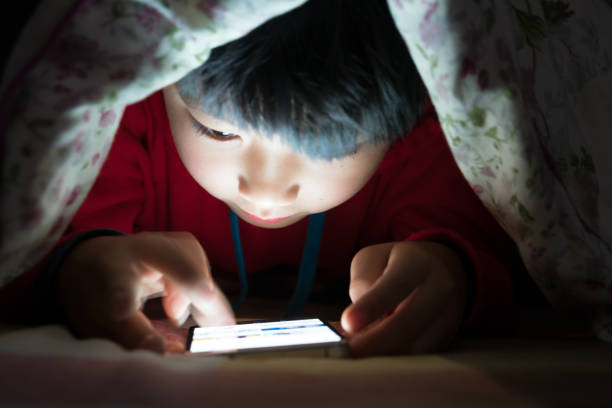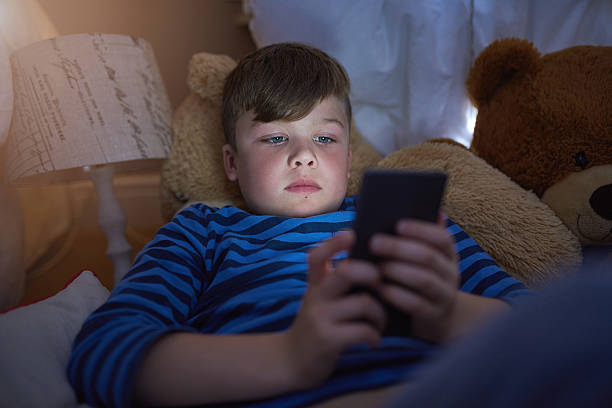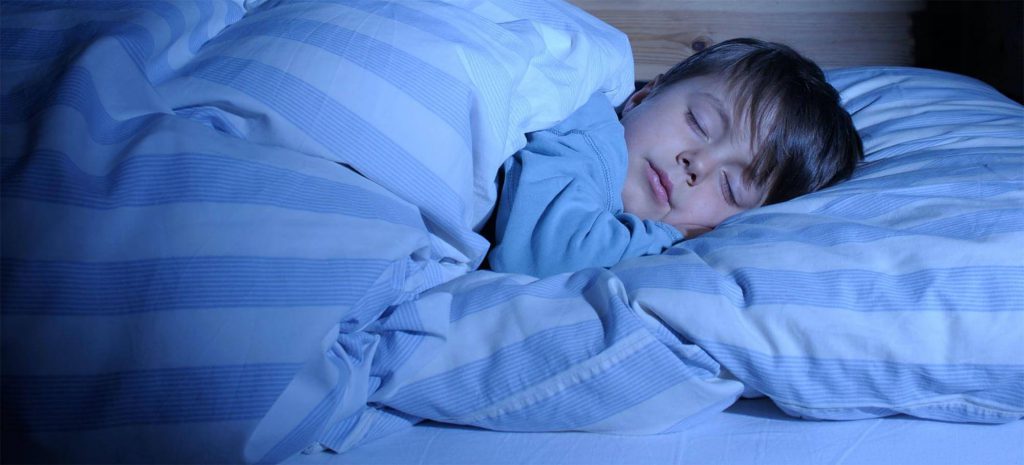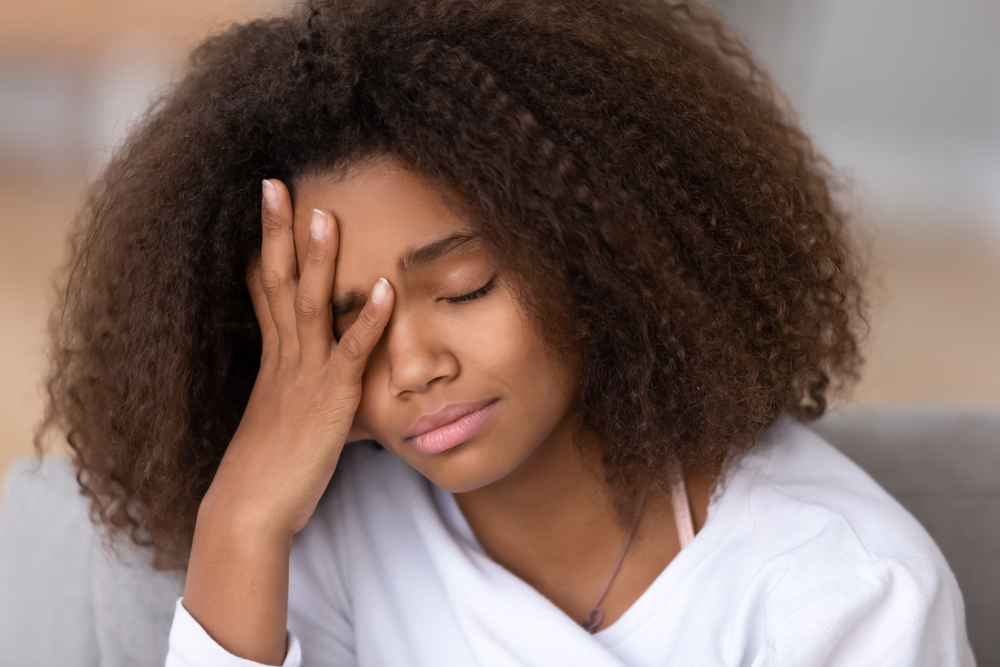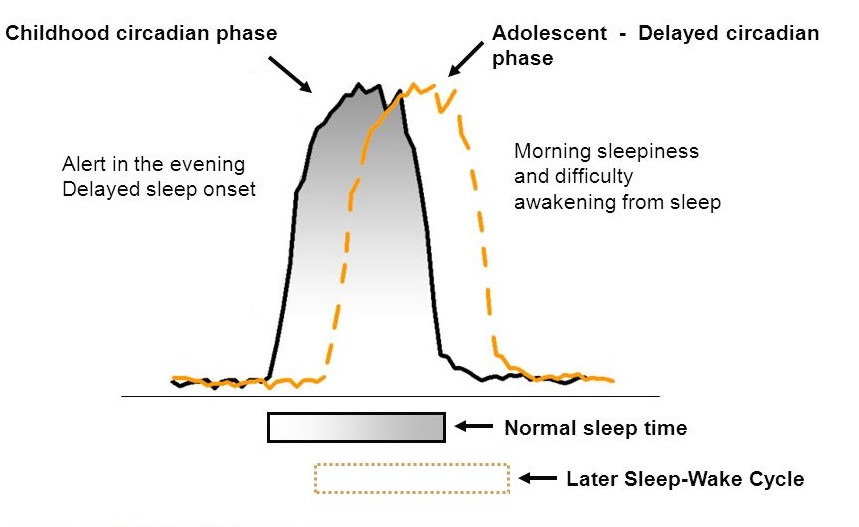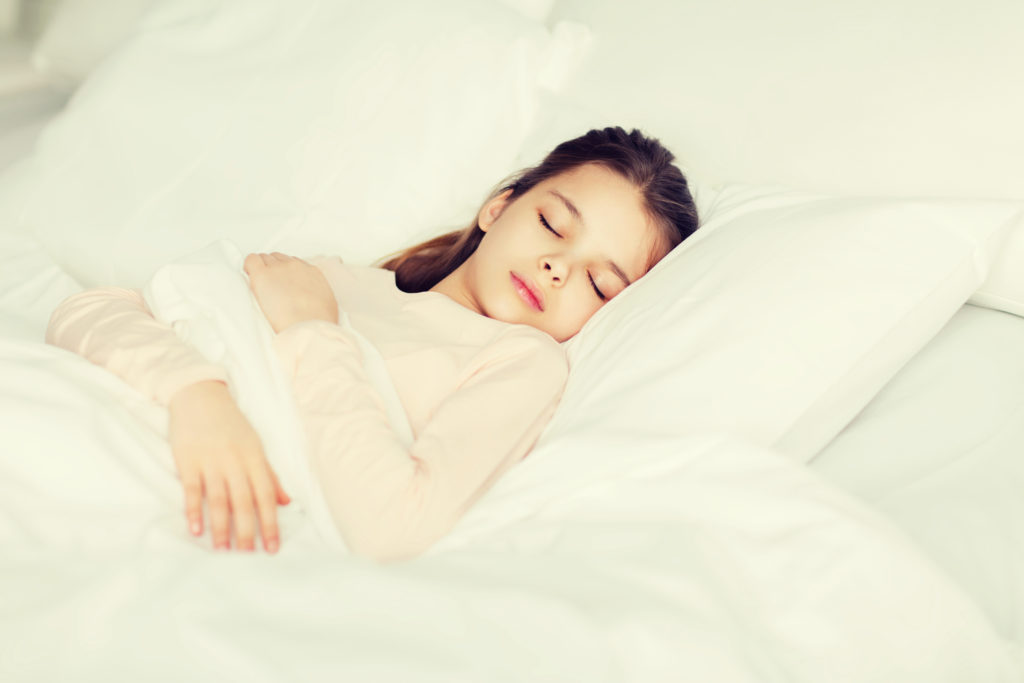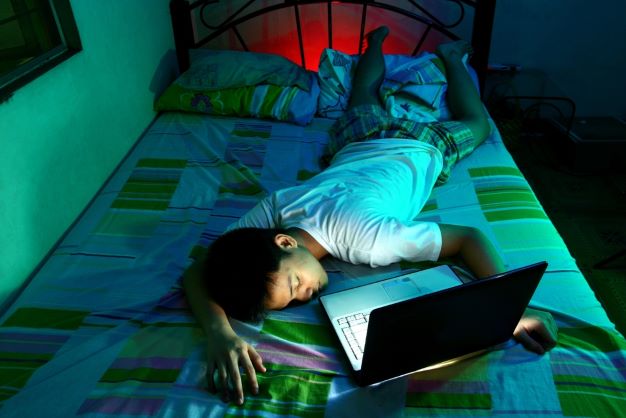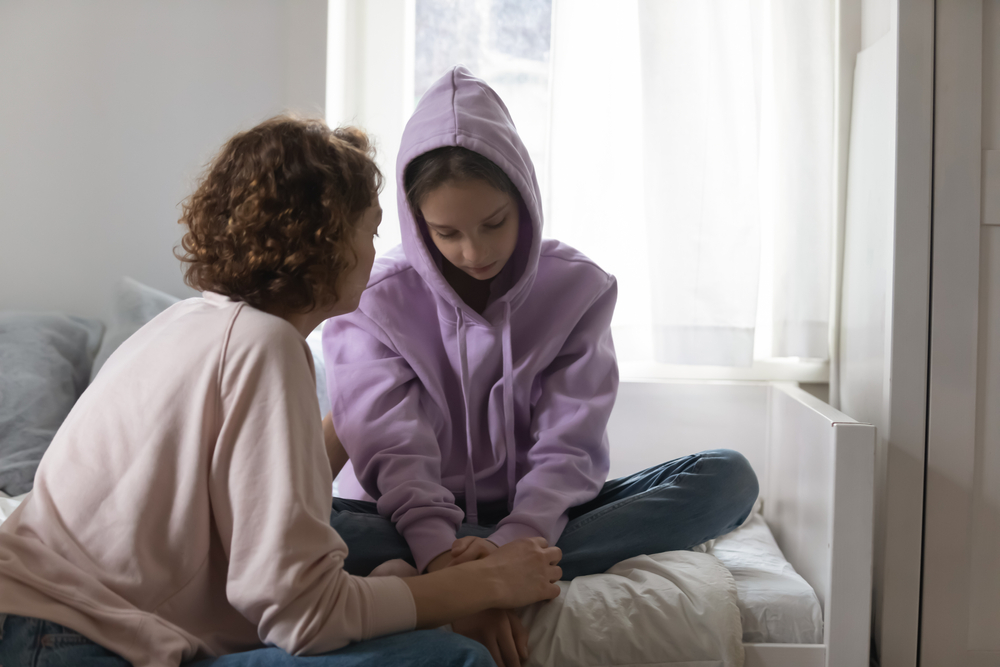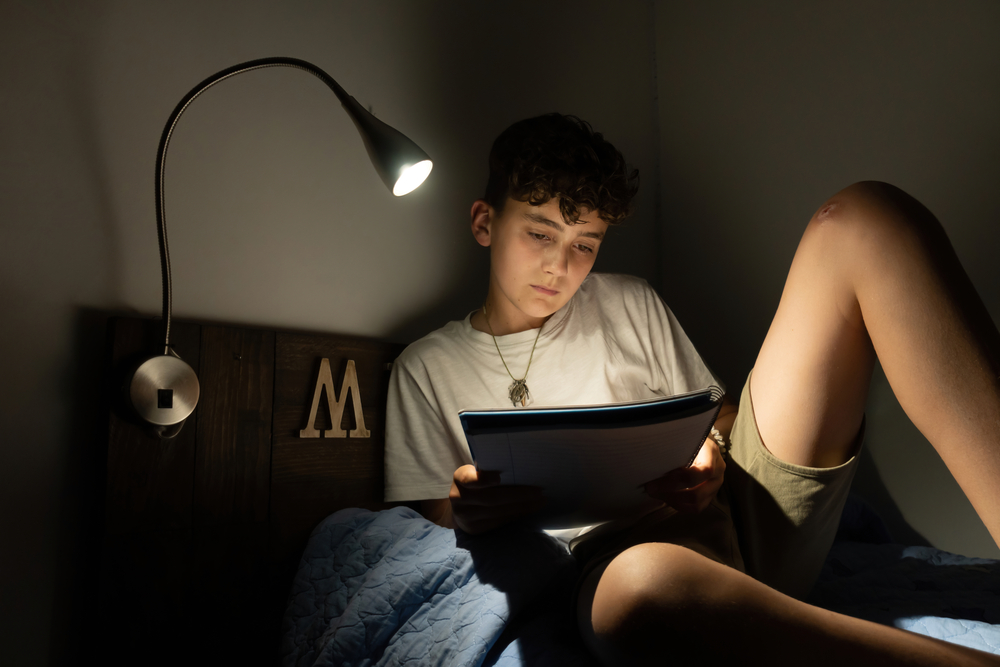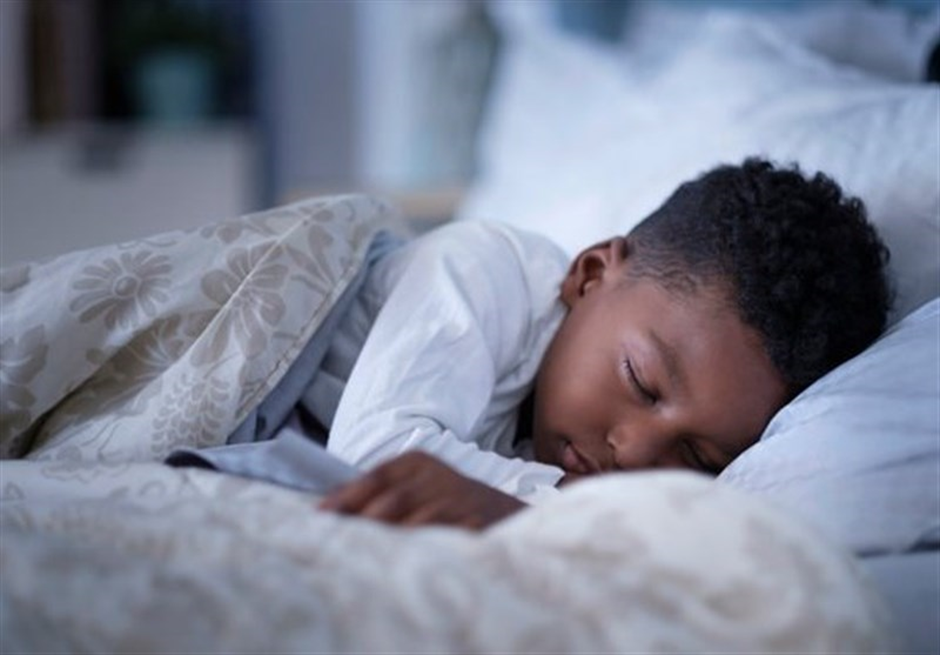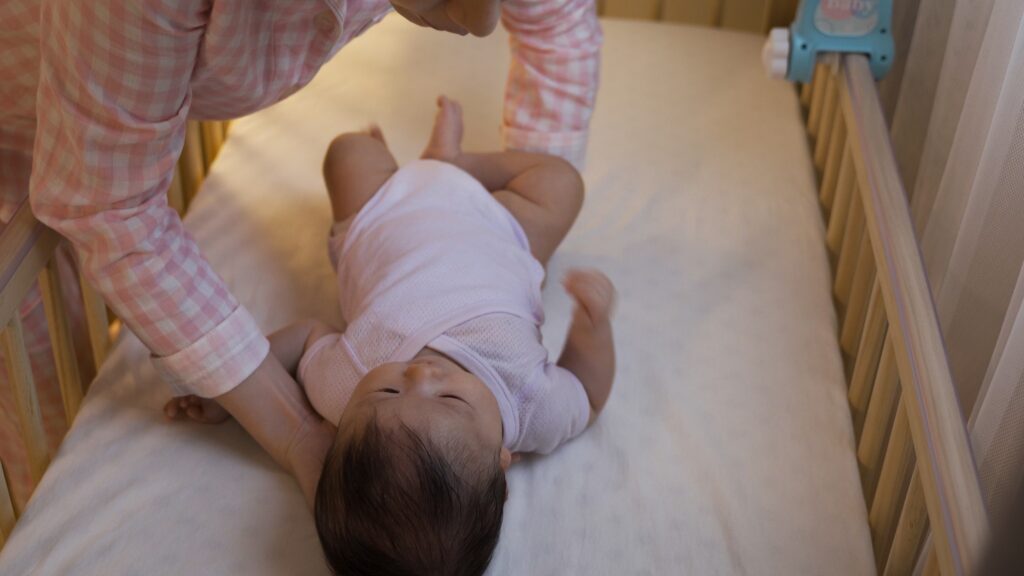
Let’s face facts, mobile phones can keep us in contact with the world and be the source of amazing entertainment and information, but they can also be intrusive, the bane of our lives and have a massive impact on our sleep! Even more so for our children and young people!
We’re all guilty at times of mindlessly scrolling through our phones, possibly losing valuable time that we can ill afford. But if we’ve got into this habit as a way of winding down in the evening or when in bed, we may also be losing out on valuable sleep as well! In a recent literature review, 90% of included studies found an association between screen media use and delayed bedtime and/or decreased total sleep time.
So how does using a mobile phone in the evening and in bed impact our sleep?
Let’s delve into this….
Light from screens at bedtime:
- Several studies have shown children to be particularly vulnerable to difficulties falling asleep and poorer sleep quality linked to the use of screens at bedtime.
- Children may be even more sensitive to light as they have a larger crystalline lens than adults, particularly younger children yet to go through puberty. Studies have shown light exposure in the evening may suppress children’s melatonin twice as much as adults.
- We know from studies just four minutes of bright light at the wrong time of day can trick our brains into thinking it’s daytime and switch off our valuable melatonin.
- The type of light also has an important role. Blue light from screens affects our sleep stages, reducing the time we spend in slow-wave and rapid-eye-movement sleep, both stages of sleep that are essential for cognitive functioning.
Busy or stressed minds will struggle to fall asleep
- Phones at bedtime can stimulate and alert minds, meaning we will both struggle to fall asleep and have less sleep.
- We can quickly start associating our bed with alertness and difficulties sleeping; only an hour ago we were dozing on the sofa, and now we’re in bed fully alert and can’t sleep.
- Having a phone by the bed or under the pillow could mean our brain will be actively alert all night, as it anticipates the ping of nighttime messages; impacting the quality of our sleep.
- How we engage with our phones makes a difference. Passively listening to music or mindfulness meditation is very different to the impact on our brains of actively engaging in content, messaging or chats.
- Seeing or reading content or messages that are upsetting or anxiety-provoking, unsurprisingly, will disrupt our sleep. Even content that’s thought-provoking positively could send your thoughts off in other directions, away from sleep.
Are you worried about your child’s sleep?
Check out our top tips:
- “House Rules”- Start early- as soon as your child has their first mobile phone consider setting a house rule that there are no phones in bedrooms.
- Set up a charge point for phones in another room.
- You will need to follow suit and set an example for your child, the bonus is this could have a hugely positive impact on your sleep too!
- Have a screen-free zone an hour or two before bed and tuck devices away for the night in another room.
- Instead of screens, your child may love to spend time with you doing something creative or mindful such as colouring, drawing, reading or a 1000-piece jigsaw.
- If young people have to study late in the evening, consider screen filters for their laptops and dark-mode options on mobiles. There are also blue light-filter apps available for most devices.
- Create a spa-like atmosphere an hour before sleep by dimming the lights in the bathroom and bedroom. Studies show even 4 minutes of bright lights in the evening can delay melatonin as much as 90 minutes.
It can be very difficult to encourage young people to change the habit of having their phones with them at all times. It helps to introduce phone house rules from the get-go and to lead by example yourselves. Your teen may already be struggling with their sleep and feel exhausted during the day. Talking to them about the negative role devices and blue light have on their sleep, could be a first good step towards them deciding to turn off their phones before bedtime.
Written by Mandy Gurney. RGN.RM.DipHV
Founder Millpond Children’s Sleep Clinic.
